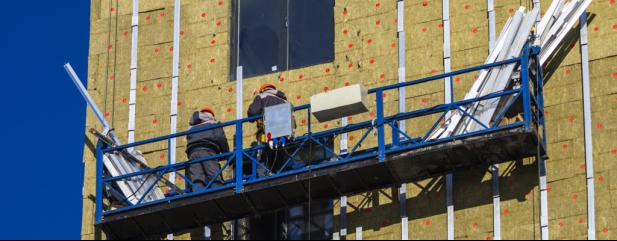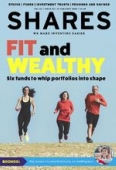Archived article
Please note that tax, investment, pension and ISA rules can change and the information and any views contained in this article may now be inaccurate.
Housebuilders hit by surprise escalation in cladding costs

Shareholders in the big six major UK housebuilders received a rude awakening on Monday after the sector lost more than £1.5 billion in value after the government unexpectedly said it could force them to fix cladding issues on high-rise buildings at an estimated cost of up to £4 billion.
The hardest-hit stocks were Persimmon (PSN) and Barratt Developments (BDEV), down 5.3% and 4.9% respectively for a combined loss of almost £850 million, although the damage extended across the sector with smaller developers such as Redrow (RDW) and Vistry (VTY) also losing around £100 million each in market value.
Cladding on tower blocks has been a major political issue since the Grenfell disaster in June 2017. The cost of making blocks safe is meant to be met by the freeholder who owns the building, but in many cases has been passed to the leaseholders who own the individual flats.
The Government previously pledged more than £5 billion to fund the removal of unsafe cladding from the highest-risk building, those over 18 metres high, to be paid for in part by a levy on developers.
To that end, it introduced a 4% tax on the profits of large residential property developers from April 2022, which analysts estimate could take up to a decade to raise £2 billion.
However, the Department for Levelling Up, Housing and Communications this week upped the ante considerably, giving companies a deadline of early March to agree a fully funded plan of action, including remediating unsafe cladding on buildings between 11 metres and 18 metres, with an estimated cost of a further £4 billion.
Secretary of state Michael Gove warned the Government would take ‘all steps necessary to make this happen, including restricting access to government funding and future procurements, the use of planning powers and the pursuit of companies through the courts’.
The levy is supposed to be voluntary, but if the companies refuse to comply the Government ‘will if necessary impose a solution in law’ according to the statement.
The housebuilders are hardly able to push back against the Government by claiming poverty given they have been shelling out bumper dividends to shareholders for the last couple of years.
They have also been strong beneficiaries of state-backed initiatives like the Help to Buy scheme which have helped boost demand.
The new levy could constrain these special dividends, which have been a key reason for many investors to hold the shares until now.
Building materials supplier Kingspan (KGP), which wasn’t cited in the statement but which supplied some of the insulation used on the Grenfell tower, saw its shares slide 5% to €96.30 on Monday, wiping over €900 million off its market value.
Important information:
These articles are provided by Shares magazine which is published by AJ Bell Media, a part of AJ Bell. Shares is not written by AJ Bell.
Shares is provided for your general information and use and is not a personal recommendation to invest. It is not intended to be relied upon by you in making or not making any investment decisions. The investments referred to in these articles will not be suitable for all investors. If in doubt please seek appropriate independent financial advice.
Investors acting on the information in these articles do so at their own risk and AJ Bell Media and its staff do not accept liability for losses suffered by investors as a result of their investment decisions.

 magazine
magazine









